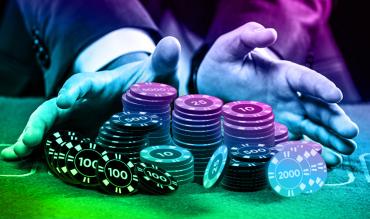Everyone has (or should have!) deal breakers when it comes to dating or business..
- Maybe someone always showing up to dinner a half hour late is unacceptable.
- Or a job that wants to pay you half the industry standard.
Whatever it is, some things in life are non-starters. There are offers you can – must! – refuse.
The same goes for poker.
So, you should be wise to when you’re being offered a raw deal.
These are three of the biggest poker deal breakers to look out for the next time you go to a casino.
Newsflash: the essential part of poker is not learning how to play - it’s learning where to play.
The table you sit down at will directly impact how much you win or lose. Giving yourself an edge comes down to game selection.
Poker is a lot like life. Try not to shoot yourself in the foot!
- Don’t swig shots before an interview.
- Don’t karaoke Eminem.
- Don’t start a diet on your birthday.
Whether you’re after weight loss or wallet gain, set yourself up for success.
Deal Breaker #1: The Luck Factor (part 1)
Let’s start with the blinds (which, by the way, get their name because they are a “blind bet” – you have to pay before seeing your cards! But their impact on your game shouldn’t blind you.)
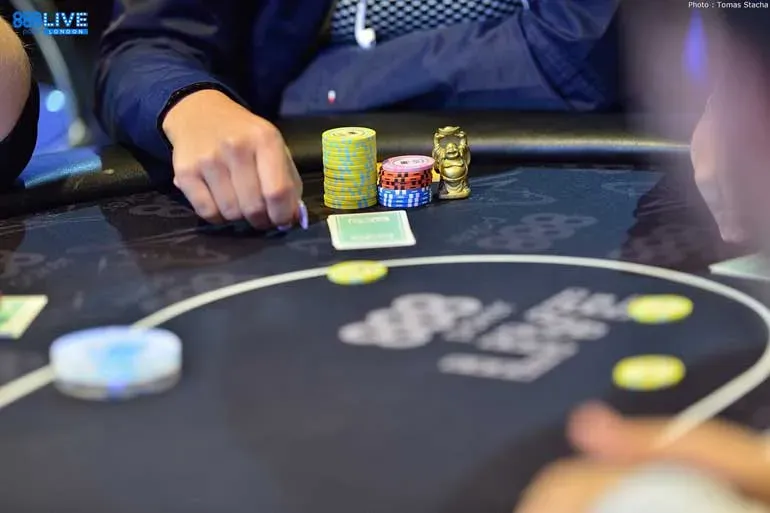
If you’re brand-spanking new to poker, blinds appear like this: $1/$2, $5/$10, $100/$200, and so on. You will also come across $2/$5 or $3/$5 because no one carries coins anymore. Los Angeles is known for $5/$5 games since Hollywood celebrities are turned off by anything normal, whether baby names or poker games.
Blinds anchor the amount it costs for anyone to play. The bigger the big blind, the bigger the minimum price. If a friend invites you to a $1/$2 game, expect to spend at least $2 whenever you want to play a hand.
Every. Single. Time.
If a friend invites you to a $100/$200 game, forget about poker and ask them to buy you a trip to France.
Knowing how blinds work should be pretty obvious if you’ve played a lot of poker before. What is less obvious is that blinds reveal a game’s luck factor.
Poker is a game of skill. Better players win more often, which is why the same few guys consistently win poker tournaments on TV. “If it weren’t for luck, I’d win every time,” says Phil Hellmuth. He’s famous for being one of the best poker players and having one of the world’s most oversized egos.
But some poker games have more luck by design.
Calculate the MAX number of big blinds you can buy in for to determine a game’s luck factor.
- A $1/$2 game with a $200 max allows up to 100 big blinds (200 divided by 2).
- A $1/$2 game with a $100 max allows up to 50 big blinds (100 divided by 2).
Let’s say a game doesn’t let you buy in for more than $20, and the blinds are $5/$10. That means you only have TWO big blinds before losing all your money! You’re risking all your chips all the time. Ouch! It’s a forced gamble. In this extreme example, you can see that the luck factor would be incredibly high – this is all luck.
You can’t outplay your opponents with so few chips. You’re relying on receiving better hands. Again, luck.
Conversely, games with more big blinds favour skilled players.
Anything under 20 big blinds is pretty much Bingo!
Anything over 200 big blinds will lay the groundwork for proper poker.
Deal Breaker #1: Game Selection (part 2)
This fact doesn’t mean you should hop into 500-big blind home games. Only do so if you have experience playing deep-stacked. The great thing about super-shallow games is they give almost everyone an equal opportunity to win.
If you’re playing 10-big blind poker, you could just as easily beat a Main Event champ as you could win heads or tails on a coin flip. But most of us fall in love with the game of poker because we like thinking things through.
We prefer betting across multiple streets and doing more than simply shoving all-in. My hunch is you’ll want to play in games that aren’t shove-fests.
In my book A Girl’s Guide to Poker, I advise this as the Deal Breaker: Games under 100 big blinds.
Unless you want to mess around and have fun, you should only play at tables where the buy-in is a full 100 big blinds. Unlike, say, the 3/5 tables in Los Angeles where the buy-in is $100-$300. The luck factor in that kind of game will be very high. Your profits will depend mainly on how you run.
Say you’re just getting your feet wet in poker. You’re better off playing a game with smaller skill gaps than a shark-infested 5/10 game with big-stack pressure – pulling 3-bet isolations and wielding their position to stack you.
Assess your skill level, then define your deal breaker accordingly.
Deal Breaker #2: The Competition
Here’s a poker joke for you:
- Two poker players are lost in the wilderness.
- A bear jumps out of the bushes and starts chasing them.
- They’re about to start running, but one stops to tie her shoes.
- Her friend says, “What are you doing? You can’t outrun a bear!”
- The other friend replies, “I don’t have to outrun the bear. I only have to outrun you!”
Ha-ha! So is life.
Moral of the story: You can be the 10th best poker player in the world, but if you’re playing against the top nine, you’ll likely lose. DON’T pick on someone your own size!
Steer clear of tables where everyone is wearing sunglasses and headphones – these are not newbies. Also, look out for players watching poker games on their smartphones. Some people would have cards injected as IV fluid if they could.
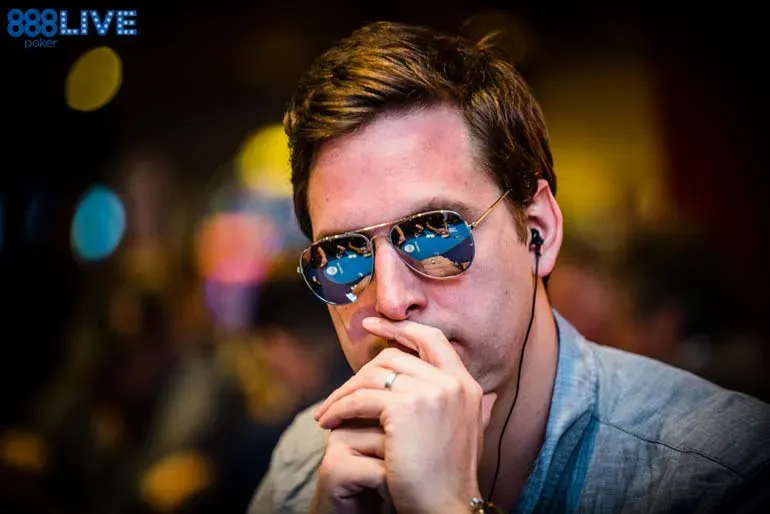
Find casual, chatty, easy-going games where chips aren’t stacked into neat little piles. Forget what your roommate said: Messy is good. Sloppy. Scattered. Disorganised.
Most regular poker players know exactly how they like to organise their chips. Many maintain nice little towers.
They never have different coloured poker chips mixed together – it’s a faux-pas dirty stack. Poker is a game of psychology and reading people. If someone is detailed and meticulous in how they stack their chips, do you think they will be loosey-goosey and undisciplined? Probably not.
Choose your opponents wisely. It is much more difficult to win big pots from tight, rigid players shy of hitting big coolers. Make your life easier – and your profit margins higher – by selecting loose games.
|
“One time, I sat down at a 2/5 game in a major Vegas casino. I watched as everyone folded everything to the blinds. No one said a word, and the game was a white-knuckles-level tight. I knew this game violated my deal breaker. “So, when it was my turn to join the game finally, I said, “no thank you,” and immediately racked up to play elsewhere. I’m confident it was the right decision – you’ve got to stick to your guns! At least for me, playing in a hyper-serious game was a deal breaker.” |
Deal Breaker #3: The Rake
Poker is the only game where you play against other people rather than the casino. So how is Vegas still in business?
Relax: Vegas will be OK. Your New Year’s Eve plans in Sin City aren’t on hold. Casinos are highly profitable – for the house, that is. As anyone who has watched the movie Rounders knows, they take a cut of the pots: the rake.
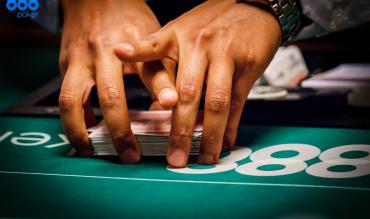
Online cardrooms don’t have to pay dealers or building expenses, giving them more flexibility. Live casino tournaments almost always rake more than online – sometimes double!
- Most online tournaments have a 10% rake.
- Most average casino tournaments will hover around 18% - nearly double.
Let’s take a typical casino example.
- You and ten friends each have $200.
- Y’all go to a casino and sit down at the same poker table.
- Blinds are $1/$2, and the average rake is $4 (which is pretty low by most standards in America.) But we are going to be conservative here).
Question: How much of your $200 would each of you have left if you played from noon to midnight?
Answer: Zero. The answer is zero.
You and your entire crew will have gone broke.
The night out cost $2,000.
And you thought bars were expensive! Here’s how:
- Dealer deals 30 hands/hour.
- Every hour, the casino takes $120 in rake ($4 rake x 30 hands).
- The casino takes $30/hour for jackpots ($1 per hand).
- Tips add up to $30/hour ($1 per hand for the dealer).
- Grand total is $180 per hour!
Twelve hours later, your wallets will be empty.
Should you even play?
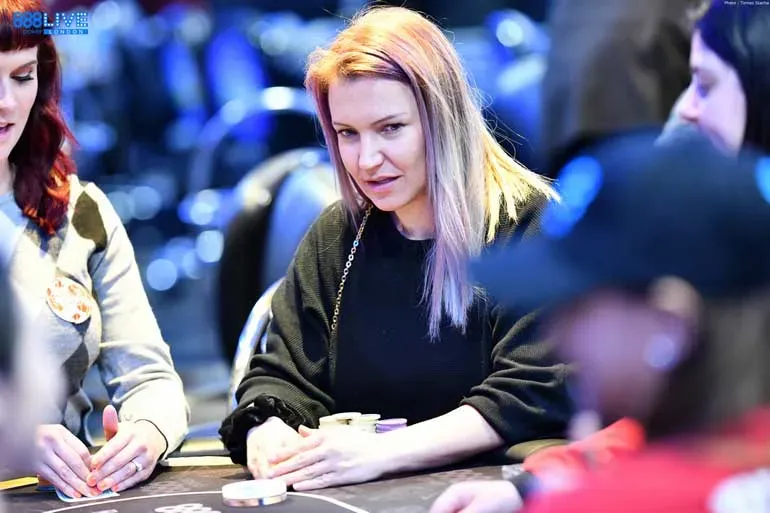
Rake impact is so exaggerated in particular games that winning is an uphill battle. (Especially if people at the game are buying in for small amounts.)
“Unbeatable” is how poker analyst and owner of Crush Live Poker training site Bart Hanson classifies high-rake, low-stakes games (generally, buy-ins of $100 or less).
| “I am very confident that those games cannot be beaten by anyone,” he told me in an interview for my book. |
Furthermore, he doesn’t believe even poker legend Phil Ivey could overcome the casino. And he has more than $26 million in tournament earnings as one of the greatest poker players of all time!
That’s not to say it’s all doom and gloom. Entry-level games, even with poor structures, have their value:
- Getting experience with handling chips
- Observing different player types
- Feeling the general pace of play.
- Plus, they can be fun!
Some poker pros hop into these Bingo!-style games every once in a blue moon. But they realise that these games are for recreation rather than profit.
So, stand your ground, and choose your game selection wisely. Do your research on rake. And especially when it comes to playing tournaments, online is almost always better.
The difference between a winning player and a losing player comes down to rake more often than you would think.
And while it may not sound very sexy, add “rake structure” to your checklist.
This article has been modified from a chapter in the author’s book, A Girl’s Guide to Poker.
